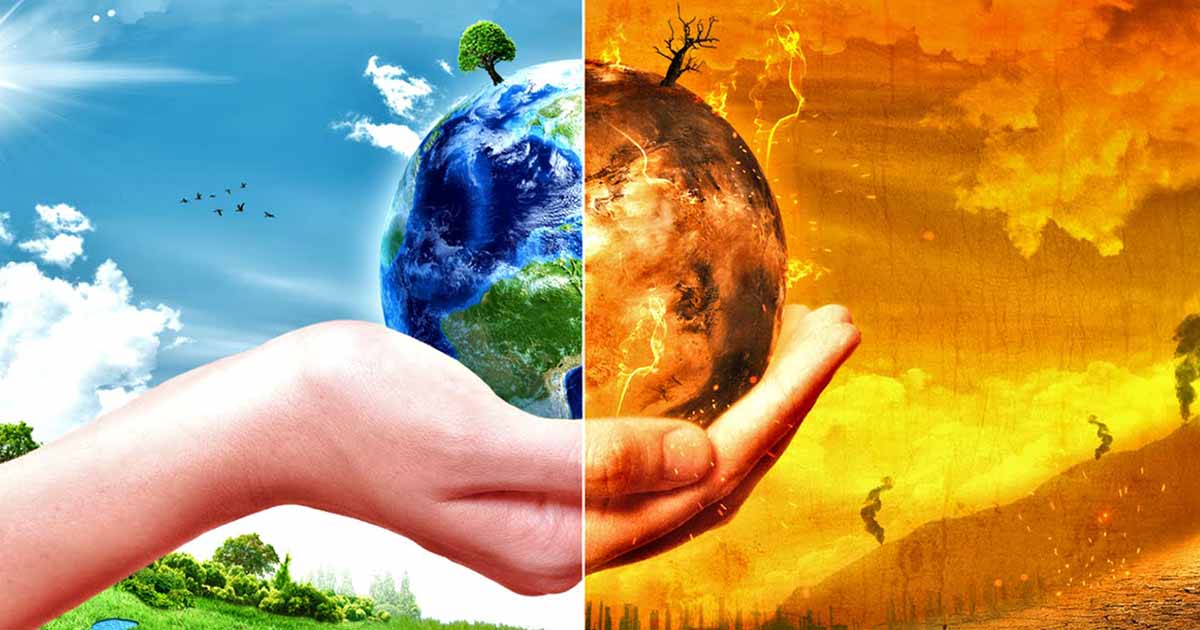Climate change is a major challenge for all of us, but it poses an undeniable threat to the African continent. Although Africa contributes 3.8 percent of global pollution and greenhouse gas emissions, it is one of the most vulnerable continents of the planet which seriously suffers from the catastrophic consequences and undesirable impacts of climate change. Most of the greenhouse gas emissions come from the energy sector which is an integral part of many economies in the Middle East.
Today, Africa faces extraordinary losses because of climate change, which are affecting African economies, investment, water and food system. In addition, it also poses a serious threat to exponential collateral damage, to public health, agriculture and livelihood, threatening to undo its modest development gains and slip into higher levels of extreme poverty. Thus, the aim of this article is to estimate the consequences of climate change and its impact on Africa.
Read more: How Pakistan is the new advocate of climate change
Understanding the matter better
In the coming decades, climate change is expected to increase the temperature on nearly all land surfaces, while the global average precipitation will increase. Africa is currently facing a rise in temperature faster than the rest of the world on average. The accelerated impacts of climate change could result in large parts of the continent becoming uninhabitable, with devastating impacts on human health, food security and poverty. Within Africa, it is likely to be the continent’s poorest people who are most affected.
Millions of people in Africa are affected by severe weather disasters due to climate change. Rising temperature, large-scale flooding, tropical cyclones, prolonged and severe drought and sea level rise all resulting in loss of human life and population displacement undermines Africa`s ability to achieve its commitments to meet the targets of the United Nations Sustainable Development Goals.
The havoc that climate change is creating and will continue to create means that it is the code red for humanity. However, there is still time to overcome this by taking timely action. The world’s leading scientific body for the assessment of climate change the Intergovernmental Panel on Climate Change (IPCC) warns that global greenhouse gas emissions will peak around2025, which should be decreased by 43% by 2030, to control the climate change by 1.5°C to avoid the complete devastation.
With a special focus on water, the State of the Climate reveals that increased water stress will affect nearly 250 million people on the continent and displace 700 million people by 2030. Four out of five African countries are unlikely to manage or sustain water resources by 2030. According to the World Health Organization (WHO), 1 in 3 people is already facing water shortages across Africa, but by 2025, climate change could have made it even worse, with some 230 million Africans predicted to face water shortages and up to 460 million may be living in water-stressed areas.
Read more: Polluters must pay reparations for climate change: COP27
The observed changes in climate have resulted in the sea level rise, melting of ice caps and increased frequency and severity of extreme weather conditions such as floods and droughts. Although the entire continent is affected by climate change, its impact is not the same everywhere in the continent. In Nigeria, millions of people are affected each year due to flooding and the increasing temperatures in North Africa that are causing drought. Therefore, it is becoming devastating for the farmers of the region.
The way forward
The Secretary-General of WMO Mr. Petteri Taalas cautioned, that the sea level rise along the African coasts is faster than the global average. He observed that this is increasing the frequency and severity of coastal flooding and erosion and the increasing salinity in low-lying areas. Changes in continental water bodies have major impacts on the agriculture sector, ecosystems and biodiversity.
Rising temperatures and changes in rainfall patterns, greatly affect human health across the African continent. Warm temperatures and high rainfall increase habitat suitability for biting insects, thus, resulting in the transmission of vector-borne diseases such as dengue fever, malaria and yellow fever. In addition, new diseases are emerging in regions where no such diseases existed before. In 2017, an estimated 93 percent of global malaria deaths occurred in Africa. Malaria outbreaks often follow periods of unusually heavy rainfall.
Read more: Migration, climate change and economic disaster in Pakistan
In conclusion, Africa recognizes climate change as a major challenge to its development. The continent is already experiencing its effects, which have wreaked havoc. African countries are already facing many challenges. The change in climate places an extra burden on the continent’s efforts to address existing challenges, significantly hindering development in the continent. The world needs to address this issue on a war footing since we cannot afford to fail the whole of the African continent.
The writer is an Assistant Research Fellow at Balochistan Think Tank Network, Quetta. The views expressed in this article are the author’s own and do not necessarily reflect the editorial policy of Global Village Space.














